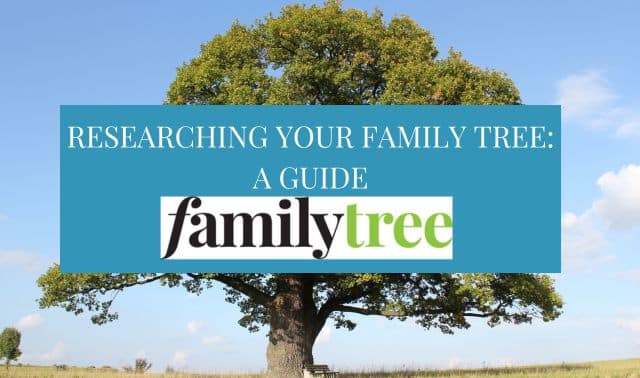Some people dream of being famous — seeing their faces splashed across TV screens and magazine covers, or becoming household names. Not genealogists: We’re more interested in finding celebrities in our family trees. Discovering you’re related to Audrey Hepburn or Bing Crosby is far more exciting than actually handling the strings attached to stardom. (After all, who wants to fend off frenzied fans and nosy reporters?)
Of course, some family historians might envy the genealogical perks of celebrity: If you’re famous, it’s pretty likely someone else will trace your entire family tree for you. Take Audrey Hepburn and Bing Crosby, for instance. Their ancestries have been thoroughly traced by professional genealogist Rhonda McClure, author of the new book Finding Your Famous (& Infamous) Ancestors (Betterway Books). Rhonda has researched dozens of celebrity pedigrees, and she shares some of the secrets from her book in this issue. With her tips, you’ll have no trouble finding out whether you’re “Almost Famous.” You’ll also get a peek into the heritage of a few star-studded families.
If you do uncover celebrity connections in your family tree, you might be able to benefit from that genealogical perk, after all: You can piggyback on the research already done by others — including everyday family historians like you. Remember, finding notable kin used to be genealogy’s primary purpose: People wanted to brag about their relations to nobles and statesmen. That’s still true today. Hundreds of lineage societies, such as the Daughters of the American Revolution <www.dar.org> and the General Society of Mayflower Descendants <www.mayflower.org>, exist to celebrate our famous forebears. If you’ve ever hoped to join one of those exclusive clubs, turn to page 30: Contributing editor Nancy Hendrickson tells you all you need to know about lineage societies, including the other privileges of membership.
You’ll find plenty of helpful tips and resources in this issue, even if your progenitors were plain Janes and Joes. For example, those of you with Dutch, Belgian or Luxembourger roots can look to this issue for help. If you regularly take your research on the road, don’t miss our genealogy-focused guide to personal digital assistants.
And you certainly don’t need to have well-known forebears to dig up pictures from your family history. Thousands of old photos, including entire collections from historical societies and archives, have been digitized and uploaded to the Web, where you can search them for free. Although you might not stumble across an image of Great-great-grandpa himself, you’re sure to locate a snapshot of a place your family lived or an event they witnessed. Contributing editor David A. Fryxell points you to the best databases for “Picturing the Past.”
Many of you, especially longtime subscribers, probably recognize David’s name, as well you should: He’s been writing this column since Family Tree Magazine‘s inaugural issue, back in January 2000. As our founding editor, he deserves much of the credit for developing this into the magazine you look forward to issue after issue, as well as instilling in our whole staff a passion for making this the best genealogy magazine. We eagerly embrace our mission to bring you the tools and advice you need to succeed in your ancestor search — and I’m looking forward to leading the charge. This is your magazine, so let us know how we’re doing. Which topics are you waiting for us to cover? How else can we help you discover, preserve and celebrate your family history?
No, we can’t give you the celebrity treatment and present you with a fully researched pedigree. But you wouldn’t really want someone else digging up your entire family history, anyway. You’d miss out on all the fun.
From the October 2003 issue of Family Tree Magazine.




